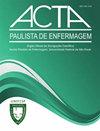工人体育活动中的社会支持
IF 1
4区 医学
Q3 NURSING
引用次数: 0
摘要
目的分析正式和非正式社会支持在工人闲暇时间体育活动实践中的作用。方法对某公立大学395名行政技术人员进行横断面调查。采用社会人口学问卷、贝克习惯体育活动问卷和体育活动与社会支持量表收集数据。数据分析采用描述性统计、Student’s t检验、Cohen’s d检验和方差分析。结果92.2%的参与者在闲暇时间对体育活动给予某种形式的支持,其体育活动得分均值较高。与直接上级的支持(14.2%)相比,制度支持(58.0%)作为潜在影响者的作用更为突出,尽管在维修工人中存在一定差异。结论社会支持对促进职工闲暇时间体育活动具有重要作用。在工作环境中鼓励积极行为的制度举措需要与直接上级的鼓励相一致,这样它们才更有效。本文章由计算机程序翻译,如有差异,请以英文原文为准。
Social support in workers’ physical activity
Objective To analyze the role of formal and informal social support in the practice of physical activity during workers’ leisure time. Methods A cross-sectional study carried out with 395 technical administrative workers at a public university. Data were collected using sociodemographic questionnaire, Baecke Habitual Physical Activity Questionnaire and Physical Activity and Social Support Scale. Data were analyzed using descriptive statistics, Student’s t test, Cohen’s d test and Analysis of Variance. Results Participants who reported some type of support for physical activity in their leisure time (92.2%) had higher means in the physical activity score. Institutional support (58.0%) had a prominent role as a potential influencer compared to support from immediate superiors (14.2%), although they had a certain differential among maintenance workers. Conclusion Social support plays an important role in promoting physical activity in workers’ leisure time. Institutional initiatives to encourage active behavior in the work environment need to be aligned with encouragement by immediate superiors so that they are more effective.
求助全文
通过发布文献求助,成功后即可免费获取论文全文。
去求助
来源期刊

Acta Paulista De Enfermagem
NURSING-
CiteScore
1.40
自引率
0.00%
发文量
92
审稿时长
4 weeks
期刊介绍:
Acta Paulista de Enfermagem – (Acta Paul Enferm.), ISSN 1982-0194, is a [bilingual] technical-scientific electronic publication of the Escola Paulista de Enfermagem – EPE, Universidade Federal de São Paulo – UNIFESP.
Our mission: To disseminate the scientific knowledge generated within the rigor of research and ethics methodology.
Our objective: To publish results of original research for advancement of practices of clinical, surgical, and management nursing, as well as education, research, and information and communication technology.
 求助内容:
求助内容: 应助结果提醒方式:
应助结果提醒方式:


